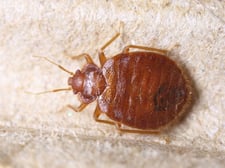Top Kings Cincinnati Bug Control Services: Exterminator Proficiency
Wiki Article
Types of Bug Control: Which Technique Is Right for Your Problem?
When faced with a bug invasion, the choice of a proper approach for insect control is important in properly managing the scenario. From chemical therapies to biological options, there exists a series of methods that can be utilized to deal with various types of insects. Each technique features its own set of considerations and benefits, making the decision-making procedure a nuanced one. Comprehending the nuances of each strategy and assessing their compatibility with the specific parasite infestation handy is vital for achieving long-lasting success in parasite monitoring. By discovering the numerous kinds of parasite control approaches readily available, people can make enlightened decisions customized to their special circumstances, making sure a much more sustainable and reliable outcome in insect elimination.Chemical Insect Control
Chemical insect control involves the usage of artificial or naturally obtained chemicals to take care of and eliminate pest populations properly. This approach is commonly utilized in agriculture, forestry, and household setups to battle a large range of bugs, including rodents, weeds, and bugs. Making use of chemical pesticides can offer quick and targeted remedies to pest infestations, making it a prominent option for lots of individuals and organizations.Among the vital benefits of chemical pest control is its capability to swiftly remove bugs, lowering the risk of damage to crops, residential property, and human health and wellness. By utilizing certain chemicals that target certain bugs, this method can efficiently manage invasions while minimizing damage to useful microorganisms and the setting when applied appropriately.
Nonetheless, the usage of chemical parasite control likewise increases problems about potential damaging effects on non-target species, water sources, and human health. It is crucial to adhere to security guidelines, use chemicals properly, and take into consideration different bug control methods to minimize these threats and make sure lasting parasite administration practices.
Biological Insect Control
Biological pest control, additionally known as biocontrol, utilizes living organisms to minimize and handle bug populaces naturally. By making use of the pest's natural predators or virus, biological pest control provides a lasting and ecologically friendly option to pest monitoring.
Mechanical Pest Control
Utilizing physical and hands-on methods to take care of parasite populations, mechanical parasite control uses an alternate method that does not depend on the use of living organisms or synthetic chemicals. This method involves the usage of obstacles, catches, or various other devices to literally discourage or eliminate insects. By blocking Find Out More pest entrance points or establishing catches to capture them, mechanical insect control can efficiently minimize invasions without presenting chemicals into the setting.One typical instance of mechanical bug control is making use of mesh displays on doors and windows to avoid bugs from getting in structures. This basic yet efficient technique works as a physical barrier, keeping bugs out while permitting for proper ventilation. Additionally, devices like mousetraps, fly swatters, and ultrasonic repellents fall under the mechanical pest control group.
While mechanical pest control methods can be labor-intensive and require regular tracking and upkeep, they provide a sustainable and environmentally pleasant option for taking care of parasite infestations. By incorporating different mechanical strategies, residential or commercial property proprietors can create a thorough insect control approach that reduces dependence on chemical pesticides.
Physical Pest Control

Some usual physical parasite control approaches consist of the usage of barriers such as internet or screens to avoid parasite entrance, traps to capture and get rid of parasites, and hand-picking to literally eliminate insects from plants or structures. In addition, strategies like warm treatments can be used to regulate bugs like bed insects by raising the temperature level to degrees that are deadly to the insects.
Physical parasite control is especially helpful in integrated parasite administration (IPM) techniques, where numerous bug control techniques are combined for reliable insect management while decreasing the use of chemicals. By utilizing physical bug control methods, people can effectively resolve bug problems with very little environmental influence.
Integrated Insect Monitoring
When carrying out physical pest control approaches as part of bug management approaches, Integrated Insect Monitoring (IPM) becomes a thorough method that leverages numerous techniques to properly control pest populaces. IPM concentrates on long-lasting prevention of bugs via a combination of organic, social, physical, and chemical tools customized to specific insect concerns. By integrating several control techniques, IPM aims to reduce the threats related to insects while additionally reducing reliance on chemical options.One trick aspect of IPM is the emphasis on tracking and analyzing pest populations to identify the most proper control approaches. This proactive method enables very early treatment and targeted strategies, resulting in much more effective parasite monitoring. Additionally, IPM promotes eco-friendly methods by prioritizing non-chemical control techniques and just making use of chemicals as a last hope.
Conclusion

By utilizing the insect's natural predators or microorganisms, organic parasite control uses a lasting and environmentally friendly option to pest monitoring. - Kings exterminator cincinnati
Using physical and hand-operated methods to manage insect populations, mechanical insect control uses a different strategy that does not count on the usage of living organisms or synthetic chemicals.An effective approach to managing insect populations without relying on chemical or biological methods involves the use of physical pest control techniques.When executing physical insect control methods as part of pest management strategies, Integrated Parasite Monitoring (IPM) arises as a thorough technique that leverages different methods to efficiently manage pest populations. Chemical pest control entails the usage of pesticides, biological pest control makes use of all-natural predators, mechanical insect control involves physical obstacles, physical bug control includes trapping or getting rid of parasites, and incorporated insect management incorporates numerous techniques for a holistic strategy to pest control.
Report this wiki page